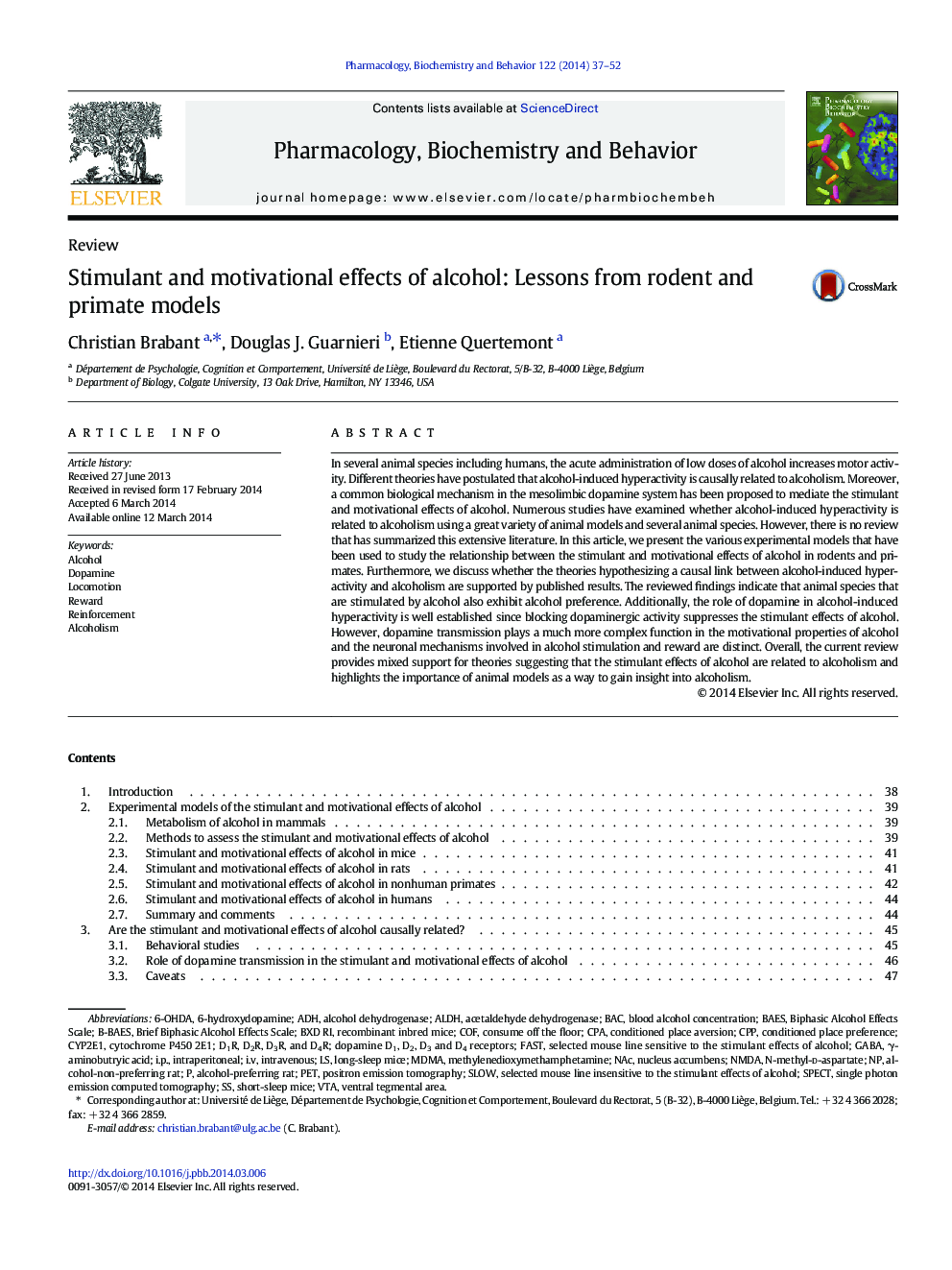| Article ID | Journal | Published Year | Pages | File Type |
|---|---|---|---|---|
| 2012862 | Pharmacology Biochemistry and Behavior | 2014 | 16 Pages |
•Several animal species have been used to study alcoholism.•The present review synthesizes the results obtained in mammalian animal species.•The review focuses on the stimulant and motivational effects of alcohol.•Animal species stimulated by alcohol also present features of alcohol addiction.•The neuronal mechanisms involved in alcohol stimulation and reward are distinct.
In several animal species including humans, the acute administration of low doses of alcohol increases motor activity. Different theories have postulated that alcohol-induced hyperactivity is causally related to alcoholism. Moreover, a common biological mechanism in the mesolimbic dopamine system has been proposed to mediate the stimulant and motivational effects of alcohol. Numerous studies have examined whether alcohol-induced hyperactivity is related to alcoholism using a great variety of animal models and several animal species. However, there is no review that has summarized this extensive literature. In this article, we present the various experimental models that have been used to study the relationship between the stimulant and motivational effects of alcohol in rodents and primates. Furthermore, we discuss whether the theories hypothesizing a causal link between alcohol-induced hyperactivity and alcoholism are supported by published results. The reviewed findings indicate that animal species that are stimulated by alcohol also exhibit alcohol preference. Additionally, the role of dopamine in alcohol-induced hyperactivity is well established since blocking dopaminergic activity suppresses the stimulant effects of alcohol. However, dopamine transmission plays a much more complex function in the motivational properties of alcohol and the neuronal mechanisms involved in alcohol stimulation and reward are distinct. Overall, the current review provides mixed support for theories suggesting that the stimulant effects of alcohol are related to alcoholism and highlights the importance of animal models as a way to gain insight into alcoholism.
